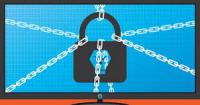-
Identifying new way to improve cybersecurity

With cybersecurity one of the nation’s top security concerns and billions of people affected by breaches last year, government and businesses are spending more time and money defending against it. Researchers have identified a new way to improve network security.
-
-
There’s a massive cybersecurity job gap – we should fill it by employing hackers

Cybersecurity incidents are gaining an increasingly high profile. These attacks are becoming increasingly sophisticated, using psychological manipulation as well as technology. To face these challenges, society needs cybersecurity professionals who can protect systems and mitigate damage. There is already an active population with a strong passion for cybersecurity – hackers.
-
-
Securing blockchain technology for cryptocurrency and other applications
Cryptocurrency, or digital currency, was introduced in 2009 by Bitcoin, and the market has since expanded to include many other brands such as Ethereum, Ripple, Litecoin and Zcash. Because it is based on unique blockchain technology, a decentralized network that doesn’t require a third party to process transactions, cryptocurrency operates independently from the global banking system. The privacy that users of a network based on blockchain technology have, however, is a major drawback.
-
-
Making scalable on-chip security pervasive
For the past decade, cybersecurity threats have moved from high in the software stack to progressively lower levels of the computational hierarchy, working their way towards the underlying hardware. The rise of the Internet of Things (IoT) has driven the creation of a rapidly growing number of accessible devices and a multitude of complex chip designs needed to enable them. A new DARP program focuses on addressing the economic and technical challenges associated with incorporating scalable defense mechanisms into chip designs.
-
-
Making scalable on-chip security pervasive
For the past decade, cybersecurity threats have moved from high in the software stack to progressively lower levels of the computational hierarchy, working their way towards the underlying hardware. The rise of the Internet of Things (IoT) has driven the creation of a rapidly growing number of accessible devices and a multitude of complex chip designs needed to enable them. A new DARP program focuses on addressing the economic and technical challenges associated with incorporating scalable defense mechanisms into chip designs.
-
-
Online voting not ready for prime time
Online voting is often considered a way to improve voter turnout and security. But according to one expert, computer scientists have got a long way to go before they make it a viable alternative to pencils and paper.
-
-
AfD Bunestag member under Russian influence: Report
Markus Frohnmaier, an MP for the far-right, populist AfD party, could be controlled by Russia, several European media outlets have reported. Frohnmaier has publicly sided with Moscow on practically each and every issue important to Vladimir Putin. The investigative report – the result of a joint effort by several leading European news organizations – concluded that Frohnmaier “stands under the influence of Moscow” and that his political and legislative actions aim to further Russia’s strategic interests.
-
-
Nagging security concerns over using Huawei’s tech in Europe
New report urges NATO members to look to emulate Britain, which created an entire government office to scrutinize Huawei’s products for security problems.
-
-
Attacks against elections are inevitable – Estonia shows what can be done
Kremlin-backed attackers are working to influence the upcoming European Parliament elections, according to cybersecurity firm FireEye. These new reports highlight rising fears of digital attacks on democracy around the world, including on the U.S. presidential elections in 2020. Russian interference in the West is not new. The experiences of Estonia – the first country ever victim to a clearly coordinated and politically motivated cyber operation – can inform American and European defenses to these complex threats.
-
-
Hackers can dupe radiologists, AI software
Hackers can access a patient’s 3-D medical scans to add or remove malignant lung cancer, and deceive both radiologists and artificial intelligence algorithms used to aid diagnosis, according to a new study.
-
-
Supporting global companies against cyber threats
A consortium of U.K. cyber security experts is to support global businesses to tackle online threats and protect themselves from cybercrime. The Cyber Readiness for Boards project has been launched to explore the factors shaping U.K. board decisions around cyber risk and develop interventions to provide guidance and support.
-
-
Bigger than Huawei: U.S. broadens scrutiny of Chinese technology
A flurry of seemingly disconnected actions by the U.S. government to curb the involvement of Chinese technology firms in the U.S. economy over the past year reflects the Trump administration’s intensifying concern that those firms could — now or in the future — abet espionage by Beijing’s intelligence services.
-
-
AI automatically detects disturbances in power supply grids
The grid is changing as the big, centralized providers of the past are replaced by smaller, distributed suppliers. Keeping such complex networks running stable requires high-resolution sensor technology – AI provides a way to make accurate predictions and automatically detect any disturbances or anomalies in real time.
-
-
Drones pose significant cyber, privacy challenges
Growing drone use in populated areas poses significant risks that, without additional safeguards, could result in attacks by malicious entities and exploited for use in cyberattacks, terrorism, crime and invasion of privacy.
-
-
AG: Muller did not find that Trump’s campaign “conspired with the Russian government” 2016 election interference effort
On Saturday afternoon, Attorney General William Barr sent Congress his “principal conclusions” of the Mueller report. Barr quotes the Mueller report to say that “[T]he investigation did not establish that members of the Trump Campaign conspired or coordinated with the Russian government in its election interference activities.” The Mueller report does not take a position on whether or not Trump engaged in obstruction of justice. Barr writes: “The Special Counsel… did not draw a conclusion — one way or the other — as to whether the examined conduct constituted obstruction.” The AG quotes the report to say that “while this report does not conclude that the President committed a crime, it also does not exonerate him.”
-
- All
- Regional
- Water
- Biometrics
- Borders/Immig
- Business
- Cybersecurity
- Detection
- Disasters
- Government
- Infrastructure
- International
- Public health
- Public Safety
- Communication interoperabillity
- Emergency services
- Emergency medical services
- Fire
- First response
- IEDs
- Law Enforcement
- Law Enforcement Technology
- Military technology
- Nonlethal weapons
- Nuclear weapons
- Personal protection equipment
- Police
- Notification /alert systems
- Situational awareness
- Weapons systems
- Sci-Tech
- Sector Reports
- Surveillance
- Transportation
Advertising & Marketing: advertise@newswirepubs.com
Editorial: editor@newswirepubs.com
General: info@newswirepubs.com
2010-2011 © News Wire Publications, LLC News Wire Publications, LLC
220 Old Country Road | Suite 200 | Mineola | New York | 11501
Permissions and Policies
Editorial: editor@newswirepubs.com
General: info@newswirepubs.com
2010-2011 © News Wire Publications, LLC News Wire Publications, LLC
220 Old Country Road | Suite 200 | Mineola | New York | 11501
Permissions and Policies
